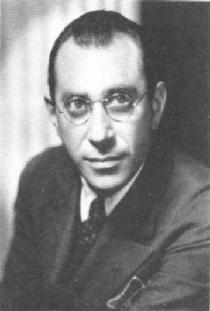Herbert J. Biberman
| Herbert Biberman | |
|---|---|
 |
|
| Born |
Herbert Joseph Biberman March 4, 1900 Philadelphia, Pennsylvania, United States |
| Died | June 30, 1971 (aged 71) New York City |
| Other names | Herbert J. Biberman |
| Occupation | screenwriter and film director |
| Spouse(s) | Gale Sondergaard (1930–1971) (his death) 2 children |
Herbert J. Biberman (March 4, 1900 – June 30, 1971) was an American screenwriter and film director. He may be best known for having been one of the Hollywood Ten as well as directing Salt of the Earth, a 1954 film about a zinc miners' strike in Grant County, New Mexico. His membership in the Director's Guild of America, stripped in 1950, was post-humously restored in 1997.
He was born in Philadelphia, Pennsylvania, to Joseph and Eva Biberman and was the brother of American artist, Edward Biberman. Biberman's pre-blacklist career included writing such films as King of Chinatown, When Tomorrow Comes, Action in Arabia, The Master Race, and New Orleans, as well as directing such films as One Way Ticket, Meet Nero Wolfe, and The Master Race. He married actress Gale Sondergaard in 1930; the marriage endured until Biberman's death. Herbert Biberman died from bone cancer in 1971 in New York City.
Though he would become fanatically pro-war after Germany invaded the Soviet Union, during the Molotov-Ribbentrop pact, his outspoken opposition to U.S. Lend-Lease to the United Kingdom was so intense, the FBI suspected Biberman (who was actually Jewish) of being a Nazi. In 1947, the U.S. House Committee on Un-American Activities began investigating the film industry, and Biberman became one of ten Hollywood writers and directors cited for contempt of Congress when they refused to answer questions about their Communist Party USA affiliation.
...
Wikipedia
